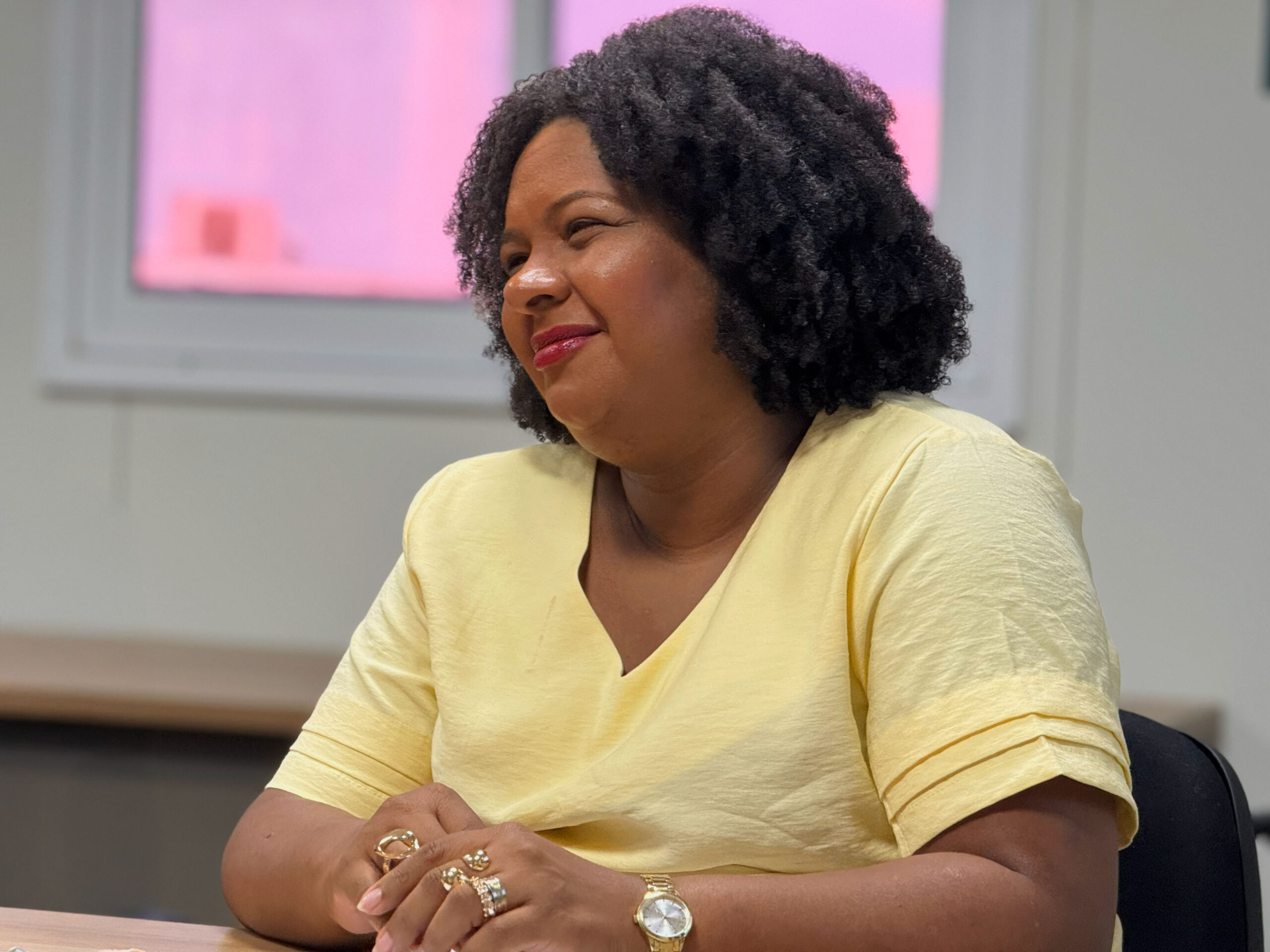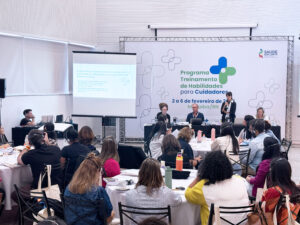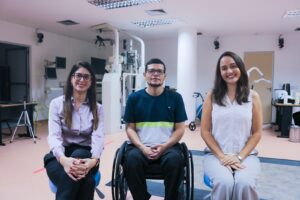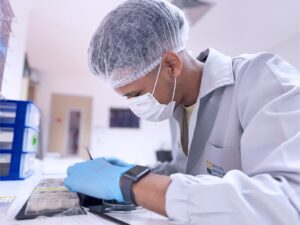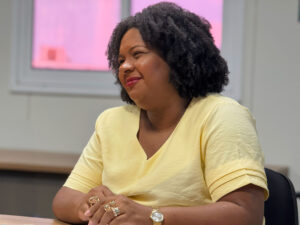After a cycle of eight face-to-face meetings held throughout 2021, the Santos Dumont Institute (ISD) concluded this Friday, December 17th, continuing education activities with 25 nurses who work in units of the Family Health Strategy Program ( ESF) from the municipality of Macaíba. The meeting was a time to review the content worked with the professionals, which involved issues related to women's health, people with disabilities and children's health, and also to define strategies for 2022 in the process of continued training of teams working at the door. entrance to the Unified Health System (SUS).
“It’s really cool when we can work with a permanent schedule and not just in one-off meetings. We managed to establish a network, we continued to discuss the points that raise doubts from one meeting to the next. We had an interesting response and we will put together the program for 2022 based on the demands presented by the professionals at this last meeting”, comments Camila Simão, multidisciplinary physiotherapist preceptor at ISD. For the next one, the plan is to start the actions in February and extend them until December, totaling 10 cycles.
During this Friday's activity, the nurses participated in a quiz with questions related to the topics presented at the meetings: prematurity, family planning, epilepsy and the postpartum period, for example. According to multidisciplinary nurse preceptor Monise Pontes, putting these topics up for debate expands nurses' knowledge and provides them with more autonomy. “The improvement is aimed at nurses as they are full-time in the Health Units, they know patients in depth, as well as the community in general. We created this year's program focused on Nursing so that these professionals can be agents of multiplication within the units”, says Monise Pontes.
In reviewing this year's themes, the nurses pointed out those that caught the most attention, as well as the dynamics of explanation adopted by the ISD's multidisciplinary preceptors and doctors. “The main thing is the teaching strategy. It’s the dynamics used to convey the content that work”, comments Mara Leocádio, ESF nurse Eloi de Souza. “Some subjects that go unnoticed in college, things we learned recently and some different names that we weren't familiar with so much, we managed to assimilate here”, adds Danielle Araújo, from ESF Campinas.
No matter how much experience they have in daily dealing with patients of all profiles, some terms are still new to these nurses. Ableism is one of them. “That meeting that talked about ableism really opened my mind. Today, I have another look. About family planning, I had a lot of doubts and continuing education helped me a lot to understand this”, says Micheline Vieira, nurse at ESF José Coelho, in Macaíba.
Health insurance
The Anita Garibaldi Health Education and Research Center (Anita), one of the ISD units in Macaíba, promotes periodic educational activities in its areas of specialty, which cover maternal and child health and people with disabilities. In 2021, topics such as epilepsy case management, family planning and autism were covered. The objective is to improve care at the main gateway to the public health service, which are the basic units. Through continuing education, professionals will be better able to identify, diagnose and better care for patients.
This action is possible thanks to an agreement signed between the ISD and Macaíba City Hall. The themes of the classes were chosen together with the nurses from the Family Health Strategy (ESF), who pointed out to the preceptors the main daily demands they face in the city's health units.
Text: Ricardo Araújo / Ascom – ISD
Photograph: Ricardo Araújo / Ascom – ISD
Communication Office
comunicacao@isd.org.br
(84) 99416-1880
Santos Dumont Institute (ISD)
It is a Social Organization linked to the Ministry of Education (MEC) and includes the Edmond and Lily Safra International Institute of Neurosciences and the Anita Garibaldi Health Education and Research Center, both in Macaíba. ISD's mission is to promote education for life, forming citizens through integrated teaching, research and extension actions, in addition to contributing to a fairer and more humane transformation of Brazilian social reality.





